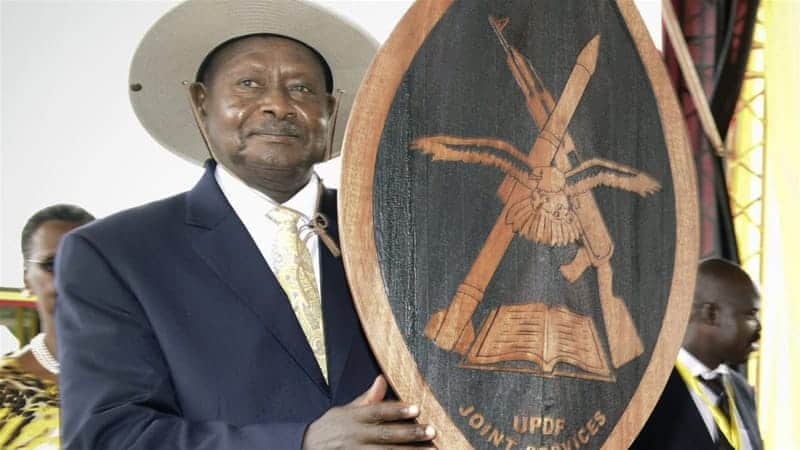
by Faith Abiodun | Jan 3, 2018 | EDITORIAL
When the news broke in September 2017 that the Ugandan Parliament was considering a bill to eliminate age limits for presidential aspirants, it sounded incredulous. After all, it was only a year before then that the sitting president, Yoweri Museveni, had won an unprecedented fifth term in office, having controversially scrapped the limit to presidential terms in 2005 to permit an elongation of his stay in power. Since taking control of Uganda in 1986, 73-year old Museveni has demonstrated time and again that he has no intentions of relinquishing his stranglehold on the country’s future, and he does so with the enthusiastic support of his cronies in parliament.
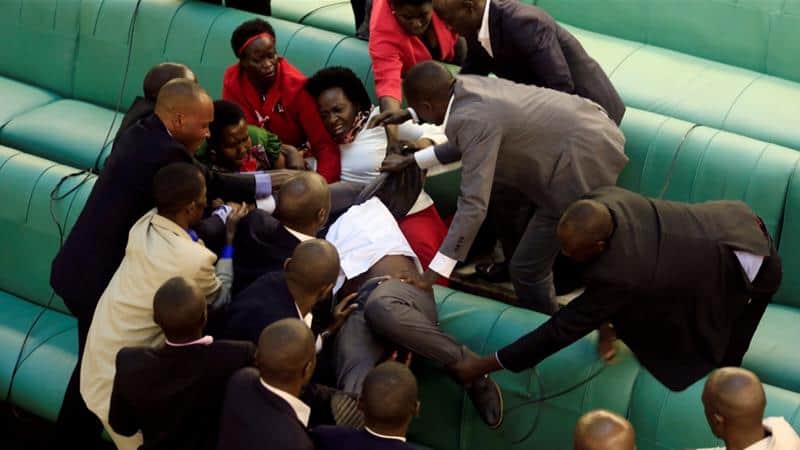
Ugandan legislators brawl in parliament during debate on the bill. Source: James Akena/Reuters
Enacted in 1995, the Ugandan constitution had stipulated that anyone younger than 35 or older than 75 will be ineligible to serve as President. That was purportedly to prevent political neophytes or aged and jaded parasites from ruling the country, but Museveni seems intent on negating all of that. Despite the protests of activists and the gallant efforts of opposition politicians, 317 legislators voted in favour of the controversial bill on December 20th, 2017, against the wishes of the 97 opposing legislators and the majority of citizens and religious leaders who made their voices heard. In his year-end address, Museveni said “Parliament enabled us to avoid the more complicated paths that would have been required. We cannot under-cook the destiny of Africa”. He eventually signed the bill into law on December 27th, 2017.
While it cannot be argued that Museveni is justified as a citizen in wanting to retain his presidency, and that there is some logic in the statement credited to MP Moses Balyeku that “age should not be a factor that hinders the rights and freedom of any Ugandan to vie for the post of a President”, it belies common sense that such narrow-minded constitutional amendments are being driven against the demographic realities on the continent. By the time the next elections are due in 2021, Museveni will be 77 years old. In a country where the median age of citizens is 15.8 years, Museveni is clearly swimming against the tide of nature. Shamefully, he is being paddled along by politicians who are more interested in their own personal aggrandisement than they are in the future of the country. Like Paul Kagame in Rwanda, Museveni has taken the irresponsible path and further dimmed the hope for responsible leadership in Africa.
Conclusively, it disgusts the senses to realize that the elongation of Museveni’s political ambition seems to be his preoccupying thought less than two years into his current term, when there is so much work to be done to lift Uganda from being one of the poorest countries in the world. If five terms of Museveni’s leadership has brought Ugandans no closer to economic freedom, what hope is there that a sixth term will make a difference? It might have been hoped that the “Mugabe treatment” will prove instructive for other geriatric African rulers, but perhaps it will take the “Mugabe outcome” for the message to sink in.
We still have a lot of work to do.
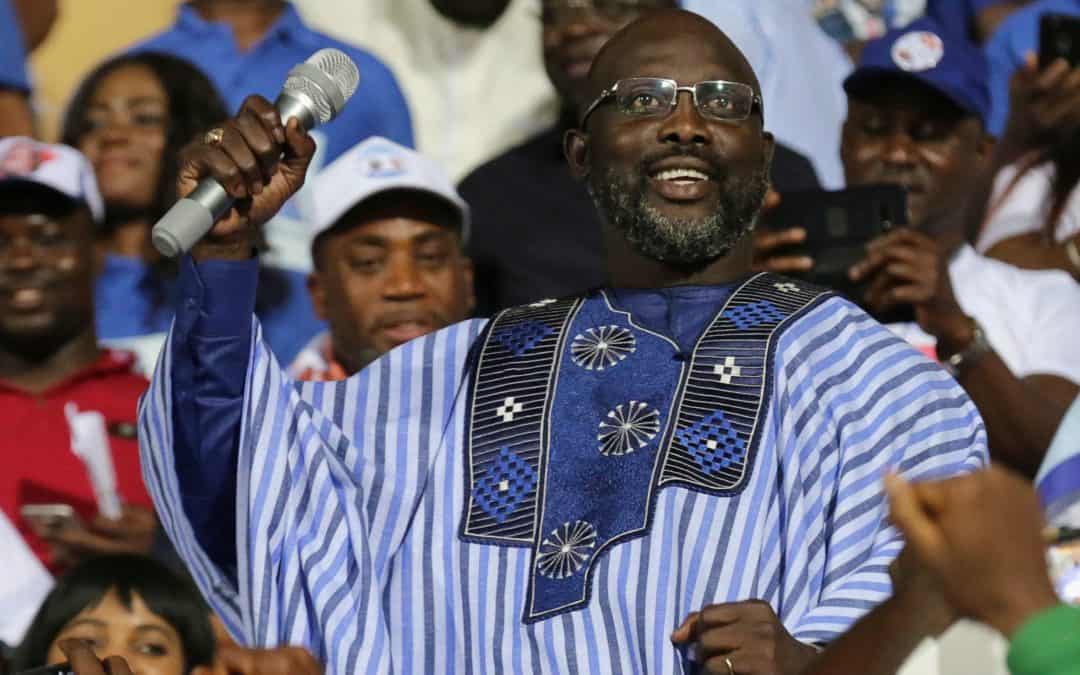
by Faith Abiodun | Dec 31, 2017 | OPINION
When George Weah first ran for President of Liberia in 2005, the air of sentimentality accompanying his candidacy was palpable; after all, he was only the most popular Liberian citizen at the time and arguably one of the greatest footballers to have ever come out of Africa. His decorations on and off the football field preceded him and the world held its breath to see if Liberia will indeed elect an uneducated inexperienced politician riding on his footballing prowess to lead the country out of decades of civil war and into economic prosperity. In the end, only 40% of the country’s citizens were willing to take that gamble; the majority of Liberians voted for the experienced hand of Ellen Johnson Sirleaf.
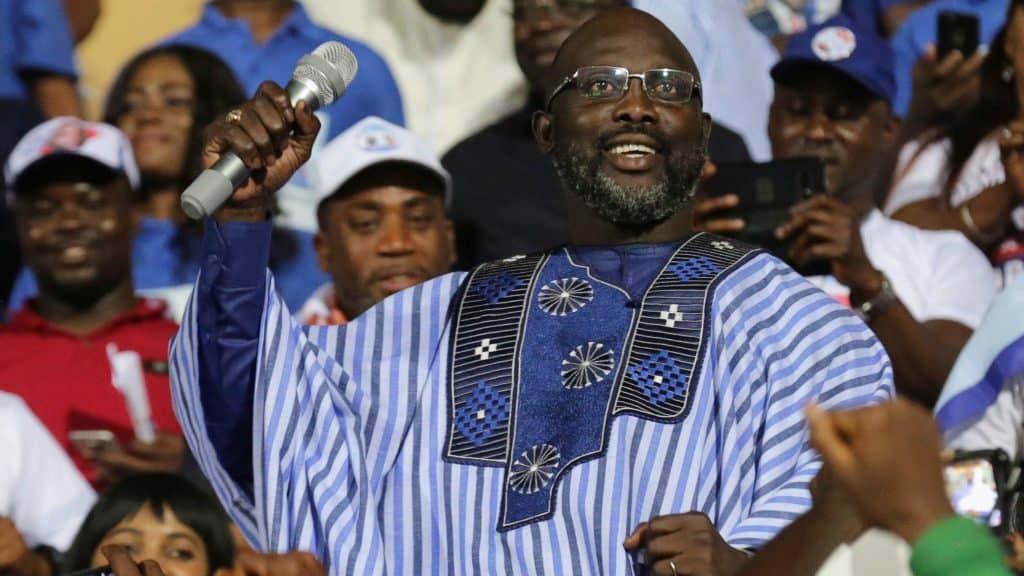
Source: Quartz
In 2010, Haitian singer Wyclef Jean also declared his interest in the presidency of disaster-stricken Haiti, and while comparisons with George Weah were drawn, George had made several big moves that had discredited any comparisons with Wyclef. George Weah had gone to DeVry University in the USA to earn a degree in Business Administration and he had dipped his feet into the political reality of his country. He got involved in the Senatorial bye-election in Monterrado County and later declared his candidacy for Vice-President with Winston Tubman in 2011 against Ellen Johnson Sirleaf. Once again, he lost, and he plugged himself even stronger into politics and eventually won a landslide election in 2014 as Senator for Montserrado County before re-launching his presidential bid in 2017.
Now that the elections have been concluded and congratulations are pouring in from across the world, it is important to assess the importance of George Weah’s election as President of Liberia. Here are five key takeaways:
- Popularity is insufficient
If popularity were sufficient, George Weah would have emerged as President 12 years ago. His prowess on the global footballing stage was second to none, and he was widely revered at home as a shining light. Since 2005, several more popular figures have attempted political careers with varying levels of success, but mostly popularity has not worked, otherwise Wyclef Jean will be running Haiti and Kanye West will be strengthening his campaign team for 2020. Yes, Donald Trump emerged president in the USA, but that had more to do with Hillary Clinton being equally unpopular, Vladimir Putin being very involved and portions of White America standing up for their values.
- Credentials still matter
Standing next to Harvard-trained Ellen Johnson Sirlef, “Mister George” looked nothing more than an illiterate footballer in a suit. It did not help his cause that his best attempt at claiming an education was a phony degree in Sports Management from an unaccredited Parkwood University in London. When he returned with his degree from DeVry, there were no questions. So, education might not be all that, but it still matters.
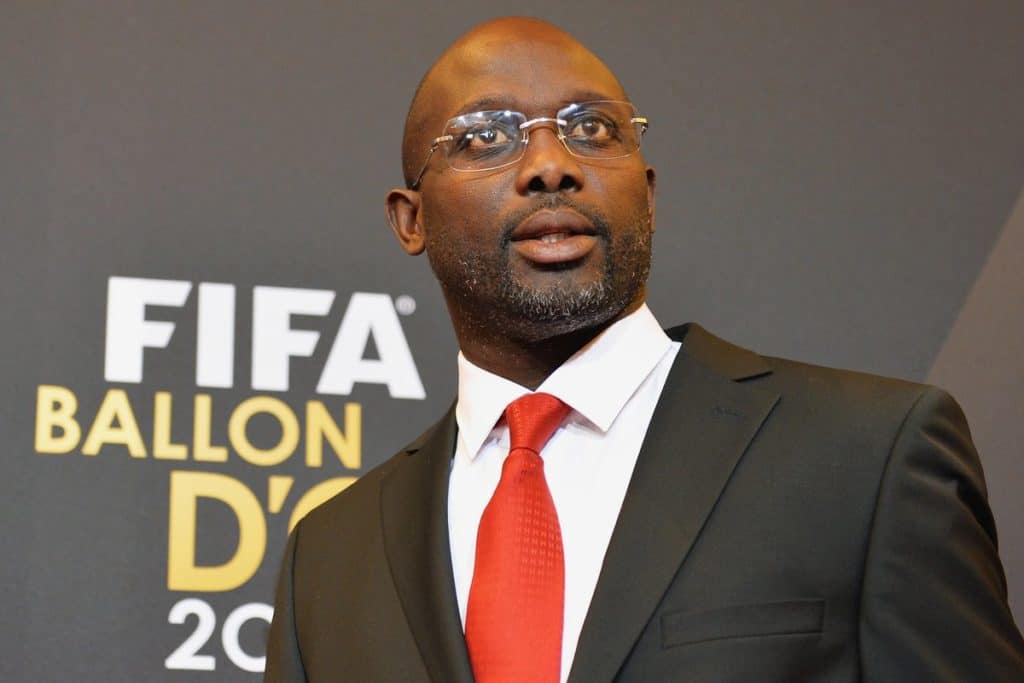
George Weah at the FIFA Ballon d’Or Ceremony
- Experience is invaluable
The best qualification for leadership is leadership experience. Beyond being captain of the Liberian national team and serving as its interim manager, there was not much else that George Weah was bringing to the table in 2005 or 2011. But his Senatorial experience, much like Barack Obama’s in 2008 made the difference in 2017. Grassroots politics might not be glamorous, but it counts.
- Citizens still vote with their hearts
Contrasting George Weah’s credentials with Vice President Joseph Boakai’s reveals the wide gulf in governing experience between the duo. Boakai served as the country’s Minister of Agriculture from 1983-1985 and chaired the West African Rice Development Association during the same time. He subsequently served as Managing Director and later Chairman of Liberia Petroleum Refinery Company, then Chairman of Liberia Wood Management Corporation and consultant to the World Bank, yet he lost to George Weah. It can be argued that 12 years as Vice President had led to allegations of corruption and fatigue from the outgoing government, but Weah’s popularity still stems from the fact that people consider his poor background and lowly upbringing as endearing factors; they believe he is one of them.
- Politics is still a dirty game
And while George Weah will be toasted at the Champs Elysees, more for his close connections to France from his playing days there and his dual French citizenship than for his political manifesto, it must be recalled that he has had to make political sacrifices to be where he is. His incoming Vice President is none other than the wife of disgraced former president, Charles Taylor, and one of his closest political allies, Prince Yormie Johnson, is known to have been a rebel leader during Samuel Doe’s presidency. Weah’s candidacy has not been viewed in the most favourable eyes by all.
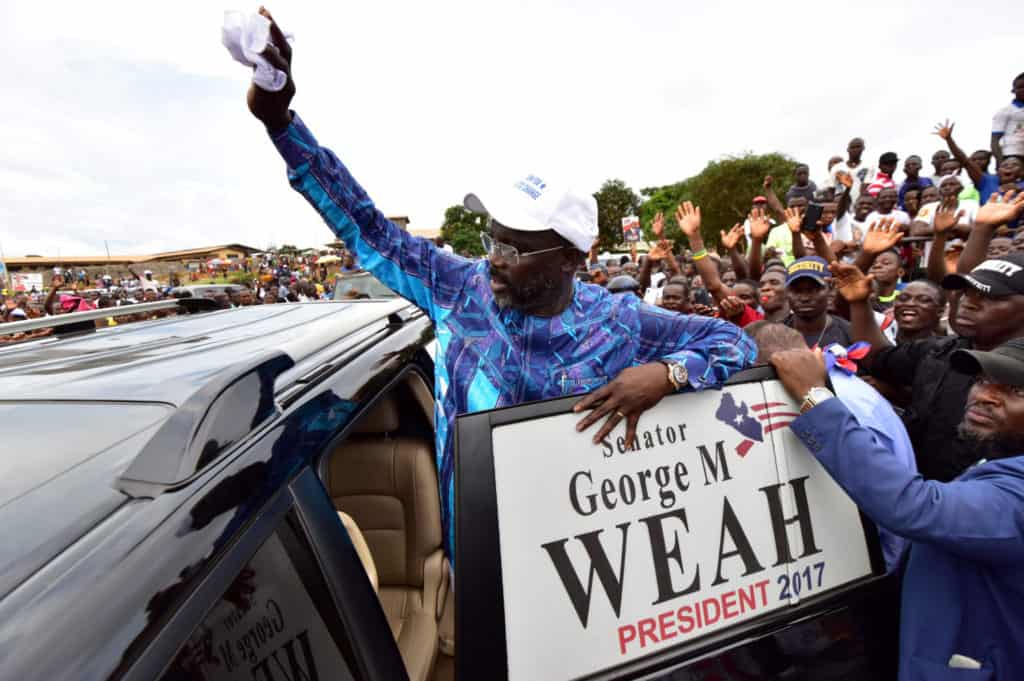
George Weah, greets supporters during a campaign rally in Monrovia on October 8, 2017.
Photo credit: ISSOUF SANOGO/AFP/Getty Images)
For now, congratulations are in order for Liberia’s beloved son; George Weah’s election proves that deep commitment to a cause can yield great results. His commitment to Liberian politics has helped him to rebrand himself as more than a successful footballer; being a great president is his next big challenge at the relatively young age of 51. If he succeeds in giving a voice to the poor, investing in education, lifting Liberia’s struggling economy, advancing infrastructure growth, attracting valuable investment to the country’s manufacturing industry and improving the ease of doing business, he will be revered as much more than “Mister George”. He will be forever remembered as “Mr President”.
Faith Abiodun is the Executive Director of Future Africa.
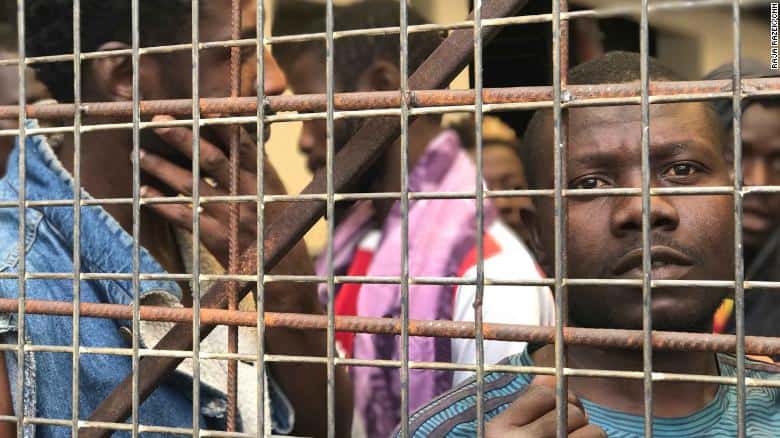
by Faith Abiodun | Dec 9, 2017 | OPINION, SPOTLIGHT
In recent weeks, Libya has been the focus of attention within the global community for the recent exposure of the mass slave trade of predominantly black African men. News outlets and social media have revealed how these men were being sold for roughly $400 and various pictures have depicted the extent of their maltreatment. All this comes after a CNN investigative journalist team released footage of material from this past month, which then sparked all the attention and consequently the Libyan government’s denunciation of the slave trade.

Source: CNN
For many people across the world, this may have come as a shock because it was not at the forefront of the societies affected, yet it does not mean the communities did not know. As unacceptable as it is, slavery is not new to the region around and by extension the African continent. What is new is the revelation of the extreme human rights abuse. By this, I mean the practice of enslaving Africans is a system that exists that several communities know of, yet the experiences are never exposed at this level. As the Director of the organisation Ivorians Living Abroad, Issiaka Konate, and former slave Diaby Baba said, “The recent discovery by CNN is in fact an open secret that people have known about”; an open secret that has led to an organisation such as Ivorians Living Abroad stating that they found 595 Ivorians within the Libyan slave network.
This slave trade in Libya can be seen as example of how societies ignore the need to address negative qualities, perhaps under the assumption that ‘out of sight is out of mind’, which then equates to out of existence. Instead the atrocity underscores the importance of addressing such situations and circumstances, particularly within the various societies across the continent.
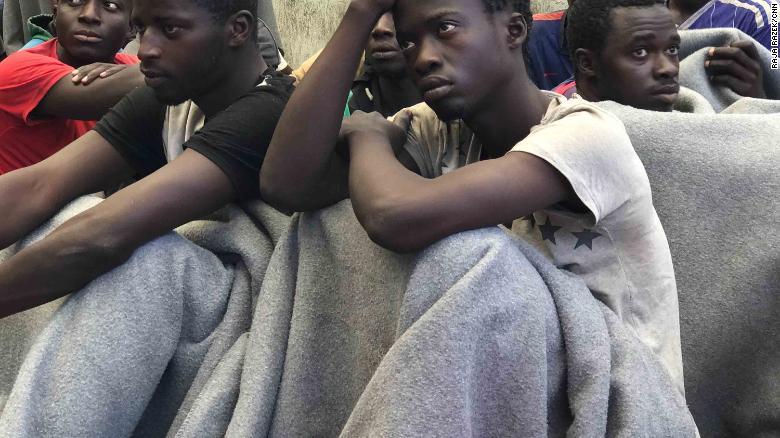
Source: CNN
It is critical not to discredit the importance of drawing the global community’s attention to the slave trade. In fact, the detailed display of this mass ‘underground’ network has raised awareness. As with all issues, awareness is a crucial first step to opening a doorway to many possibilities in regards to actions and resolutions. Now that this has been achieved, creating discussion platforms may be beneficial. These platforms need to engage the tensions that have been present even prior to this news. The tension of how nations north of the Sahara, such as Libya. interact and perceive themselves in relation to nations south of the Sahara, such as Côte d’Ivoire and vice versa. When it comes to economic relations between States, it is visible that there is an existing relationship. An example is the involvement of Moroccan corporations supporting Ivorians in developing their infrastructure.
In understanding how the relationship between such countries is complicated, especially once hierarchies are also included, we allow for these discussions to be as cognizant as possible in approaching how to attain reconciliation and a Pan African approach. Discussion, as valuable as that is, does not constitute a conclusion to such a matter. This issue by default of being on the African continent and involving African countries, is therefore an African issue. As a result there should be an expectation for strong African contribution towards action in resolving and reconciling the slave trade. By this I mean, the responsibility should not only lie with the International Organisation for Migration (OIM) along with other international bodies. Arguably organisations such as Ivorians Living Abroad have stepped up to be a part of this work. As States, Libya has denounced the actions that have occurred through the slave trade and Rwanda is exemplar in providing itself as a possible refuge to 30,000 migrants who suffered in the slave conditions.
There are also other agents taking action which have not been recognised, yet there are many more who have the possibility to also contribute even in the minutest of forms. As individuals and particularly for those who have a form of investment on the continent, it may be our responsibility to ask the questions that hold organisations, societies, governments and leaders accountable. Therefore, it cannot be said that as an individual there is no role in assuring the resolution of this issue or the next. Because this slave trade is just another example on the list of issues that have been allowed to grow to an incomprehensible capacity because it was not addressed. Out of sight, out of mind, out of existence is not a working solution and it would be rare that ever will be.
Arnold Sanginga is Director of Programs at Future Africa.
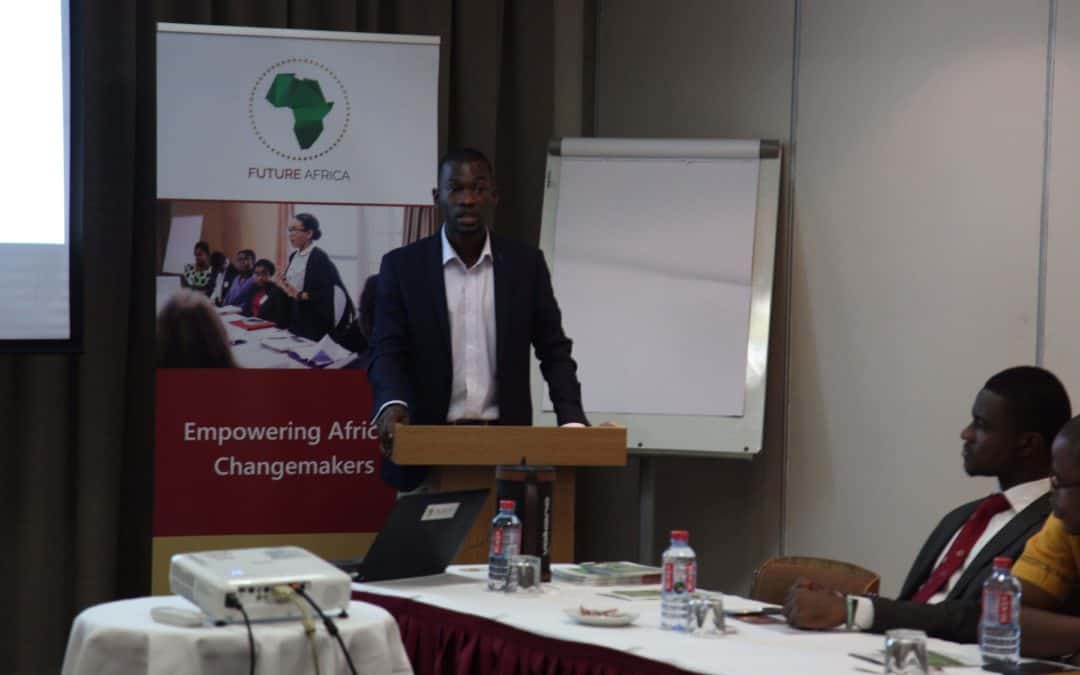
by Faith Abiodun | Oct 27, 2017 | OPINION
As the drumbeats leading up to Nigeria’s next presidential election grow louder, I have been in reflection about the role that people like me play in shaping the destiny of a nation. In under two years, Nigeria will have a new (or the same) president, and citizens would likely have resorted to the regular routine of complaints following dashed hopes yet again. It has become our national ritual since 1999 to drum up huge expectations in the run-up to our pilgrimage to the polls, and then complain bitterly almost immediately afterwards. We are not alone in this process, but Nigerians have a habit of believing our problems are the worst.
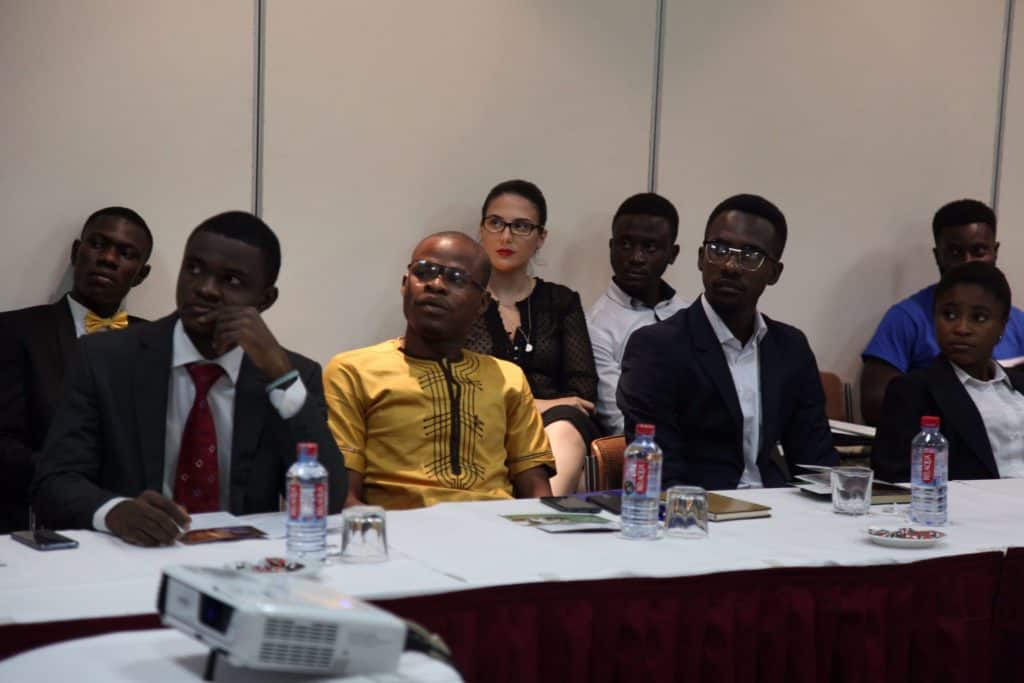
Participants at the Future Africa 30-Under-30 Forum in Accra, Ghana
I have had the good fortune of traveling to countries in the north, east, west and southern regions of the continent and I have found the political cultures to be eerily similar everywhere. Our political affairs are highly sensationalized, sparsely intelligent, and mostly pedestrian. The absence of political ideology or much of a national development roadmap precludes the evolution of a truly dynamic political party culture. What results is opposition on the pure basis of opposition and quest for power rather than presenting a counter approach to economic growth and social development. In Nigeria, this is best illustrated by the criss-crossing of candidates between the All Progressives Congress (APC) and the People’s Democratic Party (PDP), both of whom parade about the same candidates as we have seen for the last 18 years.
But they are not the problem, neither are the very poor and uneducated electorate who will vote en masse and with enthusiasm once they have received their bags of rice, gallons of oil and campaign t-shirts. I have thought long and hard about the few times when I have cast votes in state and national polls and wondered how enthusiastic I was, and the answers don’t leave me with joy. I have not been excited about Nigerian political candidates for a long time; too few who are close to the centre of political attention speak with purpose or present feasible ideas, and the very few who sound intelligible hardly stand a realistic chance. Being caught in this straight, and in spite of the best efforts of the energetic group of young Nigerians who have championed a political awakening in some of the country’s youth, I have done what most people around me do – complain bitterly about the paucity of credible candidates, strip down the threadbare policy proposals which make it to the newspapers, and decide to probably vote anyway because half loaf is better than none.
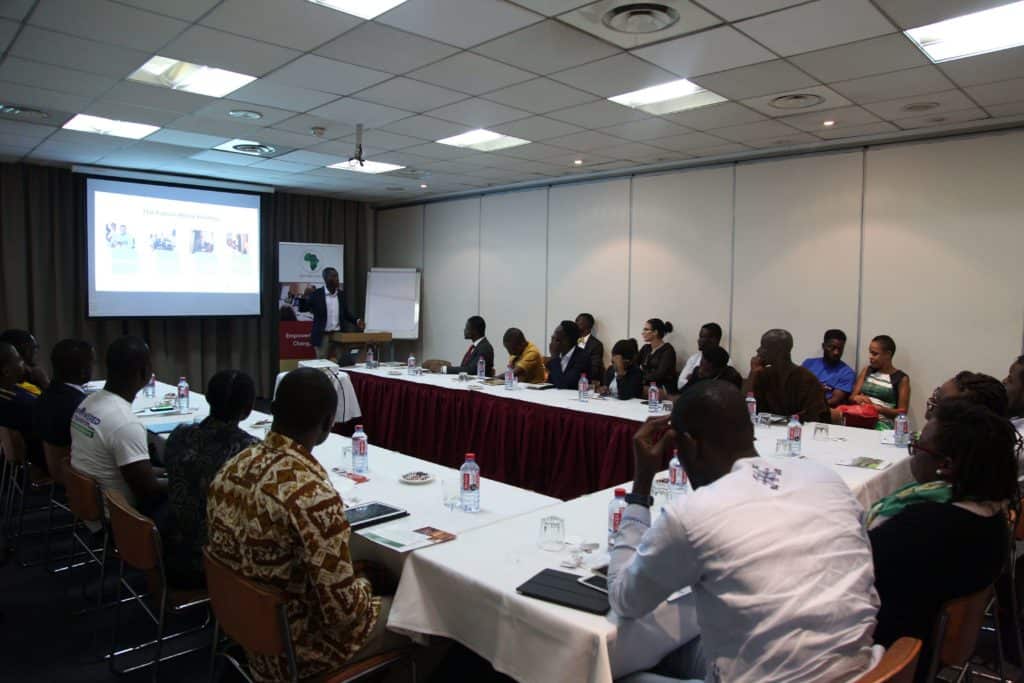
Participants at the Future Africa 30-Under-30 Forum in Accra, Ghana
Educated, empowered citizens like me who have the luxury of choosing our level of political involvement are the albatross of our continent. Many choose to abstain altogether from the electoral process because “politics is dirty”, “politicians are all greedy and corrupt”, and because we can afford to educate ourselves abroad, take vacations once a year and drive good enough cars. Because we consider ourselves to have one or two options, we choose to not be as invested as is necessary in the daily political lives of our nations; we leave that to the touts, grassroots politicians, and greedy nincompoops who have dominated our political reality for too long. So, next time you are moved to complain about the political stagnation around this continent, remember that no single individual will change the fortunes of a country; it takes the power of a collective to destroy or build a nation. For better or for worse, our fortunes are tied together.
Faith Abiodun is Executive Director of Future Africa
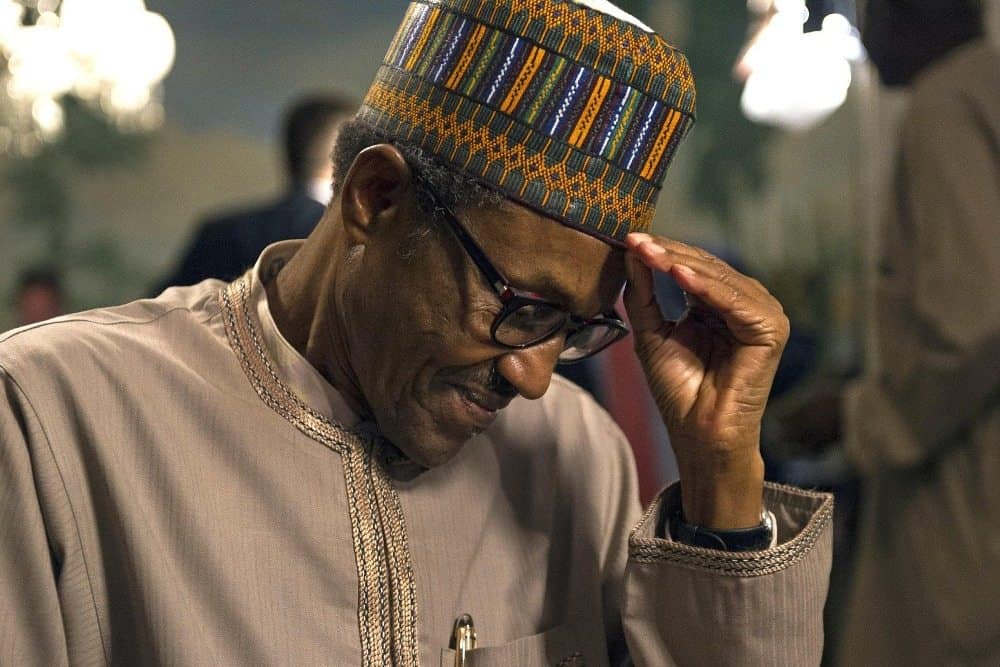
by Faith Abiodun | Aug 24, 2017 | OPINION
When Nigeria’s President Muhammadu Buhari announced through his spokesman in June 2016 that he would be undertaking a 10-day trip to the United Kingdom (UK) to treat an ear infection, the uproar was unbelievable. He was widely derided by many who accused him of perpetuating the same medical tourism which he had campaigned against. A former president of the Nigerian Medical Association, Dr. Osahon Enabulele claimed that Buhari’s action undermined the local health system in the country and contributes to capital flight which was in excess of $1bn. People questioned how grievous the ear infection could be that no Nigerian doctor was found worthy to examine. Ignoring the uproar, Buhari left for the UK.
When his spokesman, Femi Adesina, wrote on January 19th, 2017 that President Buhari would head to the UK once again as part of his annual vacation, with a tacit line that the President will undergo “routine medical check-ups”, the public discomfort was unquestionable. It was becoming evident that the suspicions about the President’s fragile state of health were more than rumours; reports of prostate cancer were not too far from the media, and prominent voices called for the President to speak the truth about his condition, but they went unheeded. What was publicly presented as a three-week vacation quickly turned into a seven-week period of discomfort and hushed tones. Rather than question the prolonged absence of their President, Nigerians were admonished to pray for his quick recovery. When he eventually returned to Nigeria, Buhari failed to answer questions about his health or to resume work in his office, he only mentioned that he had “never felt so sick since he was a young man”, but claimed to have recovered.

Source: Buzznigeria.com
It was therefore no surprise, but nonetheless utterly frustrating when it was announced less than two months after that he was returning to the UK for further treatments. Once again, Nigerians were told to ask no questions about his exact condition, but to continue to pray for his quick recovery. In a country which houses more religious centres than institutions of learning, and one which favours prayer above reasonable action, patience was fast running out. Questions were asked about who was funding the President’s treatment, but the questioners were roundly lectured in respect for elders by the unpopular Minister of Information, Lai Mohammed whose common retort was that there was no cause for alarm and that the President would return home when his doctors released him. His Personal Assistant on Social Media, Lauretta Onochie, then went on national TV to scold Nigerians for being disrespectful in asking persistent questions about the President’s health. For three months, the charade over the President’s health was played out on the pages of newspapers, on national TV and on social media sites before photos suddenly began to emerge from Abuja House in London. First it was the Vice President who visited for his photo-opp, then some state governors, then party chieftains, then the President’s social media team, then the Senate President and the House Speaker, and then Pastor E.A. Adeboye. It seemed as though the queues from Lagos/Abuja to London couldn’t get any longer. In all these photos, Buhari appeared to be healthy and smiling, while his grovelling subjects almost couldn’t believe their good fortune to be in his presence.
After so much uproar, street protests, vandalism of property, and endless social media memes, President Buhari is now back in Nigeria; and he has made one unconvincing TV appearance to show that he is alive, but the drama was not over. Apparently someone in Aso Rock had released a stream of undetected rats into his office during the past three months such that the furniture in the President’s office had been eaten up, warranting the President to work from home indefinitely. Who really comes up with these cock-and-bull stories? There are many more creative ways to express the President’s preference for working from home while he continues his recovery, but … rats?

Perhaps the most upsetting component of this charade around the President’s health is the gross disrespect to citizens who are funding the President’s care. To think and say that Nigerians do not have a right to know the health status of the person whom they elected to lead them is absolute foolishness. To cover that up by saying that the presence of an acting president suffices is further foolishness. Yes, no one can predict the nature of illnesses and no one is eternally protected from them, but it is wrong to assume that citizens do not have the right to information about what ails their leader. It has already been mooted that the President might return to the UK again for further treatment, and that will not be a surprise when it happens. He is an old man. What will be most disappointing is if his media team continues to spew out such disrespectful statements to the citizens whose taxes are responsible for his aircraft maintenance, aviation fuel, hospital bills, and the numerous other costs of bed rest.
May wisdom prevail.
Faith Abiodun is the Executive Director of Future Africa














Recent Comments